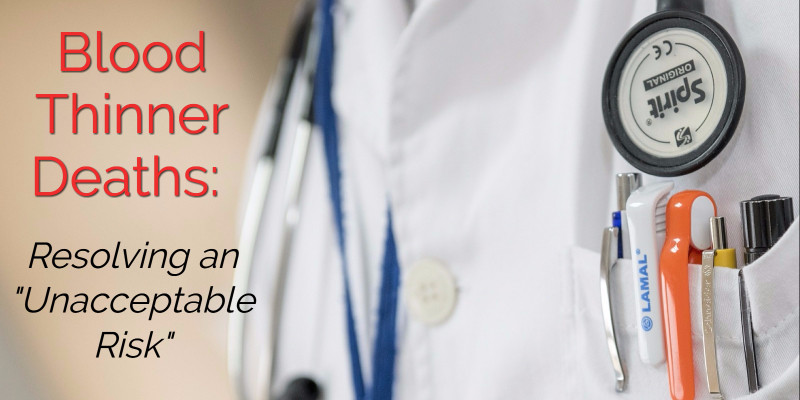
Xarelto Is the Worst Offender In a Study of Blood Thinners
A new study examining the relative effectiveness of modern blood thinners finds that Xarelto is the most likely to cause gastrointestinal (GI) bleeding.
Researchers at the mayo Clinic conducted a large population-based study on three popular anticoagulant brands: Eliquis, Pradaxa, and Xarelto. Data from more than 50,000 patients was analyzed to determine rates of GI bleeding, which is a known risk identified with all of these drugs. Xarelto, which has the largest market share of the three competing drugs, emerged as the worst offender with the highest risk of bleeding.
The cases reviewed were taken from October 2015 to February 2015, covering the widest available period for this recently released class of blood thinner.
The development of anticoagulants has moved rapidly since 2010 when dabigatran was introduced to the market. Prior to that, the veteran warfarin was the leading medication. It retained this status for more than six decades, simply because no alternative were available to patients.
That changed almost overnight when the new class of blood thinners arrived on the market.
The category into which all three of these brands fall is known as DOAC, or direct oral anticoagulant. That’s a medical way of saying blood thinners that are ingested – although even that terminology is still being worked out.
Whatever the pharmaceutical sector chooses to call them, these drugs are all the subject of lawsuits from patients who believe they have been marketed without sufficient explanation of the risks.
The common theme linking oall three DOAC brands is gastrointestinal bleeding, as the study from the Mayo Clinic emphasizes. Since the class became available in 2010, they have all been the focus of numerous drug safety alerts, most listing uncontrolled bleeding as a concern.
In the Mayo study GI bleeding incidents occurred in every test section and increased in all groups of patients aged 75 or above, demonstrating that the risk of bleeding is greater for older patients.
If Xarelto or any of these blood thinners has had a negative impact on your health, be sure to obtain a complimentary case evaluation.



